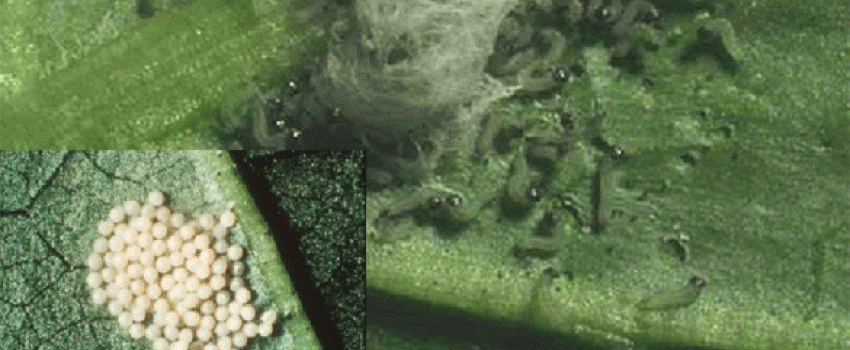Above Body
28 Apr 2017
communications
The Ministry of Industry, Commerce, Agriculture and Fisheries is today assuring farmers that the Ministry is taking steps to monitor and control the recent outbreak of the Beet Army Worm Disease in the parishes of Manchester and St Elizabeth.
The Ministry has taken note of the impact of the disease especially on onion and scallion farmers in those parishes and is therefore appealing to the affected farmers, farmers of other produce and the public at large, to join in combatting the disease by implementing several mitigating strategies.
The Ministry, though its extension services arm, the Rural Agricultural Authority (RADA) has visited the affected areas, met with farmers and provided them with information to address the outbreak.
In an advisory specifically for onion and scallion farmers in South St. Elizabeth, the Ministry has pointed out that as we approach the warmer months, when the temperatures will gradually increase, conditions for the rapid buildup of the beet armyworm are highly favourable.
As part of its on-going sensitization programme the Ministry, through RADA, has issued the following Advisory:
Advisory to the Farming Community on the Beet Armyworm in St. Elizabeth and Manchester
28th April, 2017.
The Ministry of Industry, Commerce, Agriculture and Fisheries (MICAF) and RADA are advising the following strategies to mitigate the further development of this pest at this time:
Reduce the acreages of scallion during the April to July period and cultivate alternative crops such as hot pepper, thyme, pumpkin and melon during this period.
Intensify the monitoring of crops at least twice a week or every three days
Continue to utilize the pheromone traps as a monitoring tool to detect the early arrival of the migrating beet armyworm adults (or bats)
Monitor for the early detection of the egg sacs when deposited on the tip of leaves
Newly hatched worms will emerge within three days. This is critical as these are the most vulnerable and susceptible stages where cultural and chemical strategies are to be applied. Handpicking is recommended where practical.
When spraying, choose the least toxic, bio-rational insecticides, to minimize negative impact on natural enemies (or farmers friends)
Manage all weeds within and surrounding the fields which may harbour the pest especially grasses around these fields during the rainy period as they may become an additional host for the pest.
Older worms are hardier; insecticidal treatment are less effective and worms are less exposed to chemicals and natural enemies, since they reside inside the leaves
To reduce the overnight impact of migrating older worms, dig trenches 1ft deep around the plots; Keep the trench wet and muddy to prevent exit of these worms. Be careful not to fall in. Remove once threat to crop has subsided
Only apply insecticides approved for use on scallion and onion crops.
Effectiveness of the treatments may be enhanced in small plots by clipping off the leaf tips prior to application, especially if the older beet armyworms have entered the leaves
Provide adequate nutrition to the crop
Ensure that onion and scallion crops are harvested and sold at maturity and not left in the field due to low prices or other marketing issues. Unmanaged or abandoned plants encourage the build-up of beet armyworm populations.
Follow advisories and text messages sent out by RADA immediately; Delays will only be harmful by supporting an increase in the population and increase the risk of crop damage
Contact your RADA extension officer if you are noticing an increase in beet armyworm population in your field.
Community involvement will play a big role in successful management of the beet armyworm – work together to get pest numbers down in neighbouring fields.
For further information please contact your nearest RADA office 1-888-ASK-RADA or the Research and Development Division, Plant Protection Unit (Bodles Research Station) in St. Catherine.
RADA (toll free) 1-888-ASK RADA (275-7232)
RADA St Elizabeth – 966-2285/2232
RADA Manchester – 962-2307/0479/0477
MICAF – Research and Development – Bodles- 983 – 2267 /2281
=30=
Contact:
Director, Communication & Public Relations
Ministry of Industry, Commerce, Agriculture and Fisheries
Hope Gardens, Kingston 6
T – 618-7128; E: pr2@micaf.gov.jm; daoconnor@micaf.gov.jm
Facebook – https.www.facebook.com\agriministryja
Twitter – https.www.twitter.com\agriministryja









